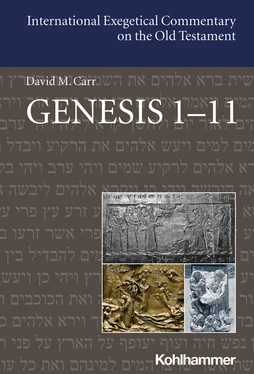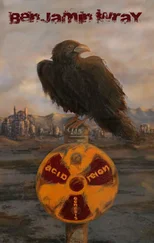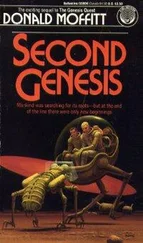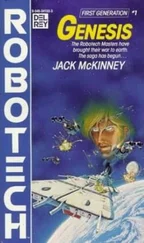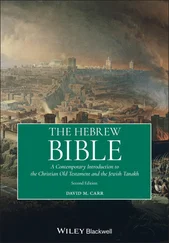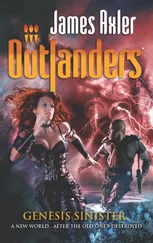David M. Carr - Genesis 1-11
Здесь есть возможность читать онлайн «David M. Carr - Genesis 1-11» — ознакомительный отрывок электронной книги совершенно бесплатно, а после прочтения отрывка купить полную версию. В некоторых случаях можно слушать аудио, скачать через торрент в формате fb2 и присутствует краткое содержание. Жанр: unrecognised, на английском языке. Описание произведения, (предисловие) а так же отзывы посетителей доступны на портале библиотеки ЛибКат.
- Название:Genesis 1-11
- Автор:
- Жанр:
- Год:неизвестен
- ISBN:нет данных
- Рейтинг книги:4 / 5. Голосов: 1
-
Избранное:Добавить в избранное
- Отзывы:
-
Ваша оценка:
- 80
- 1
- 2
- 3
- 4
- 5
Genesis 1-11: краткое содержание, описание и аннотация
Предлагаем к чтению аннотацию, описание, краткое содержание или предисловие (зависит от того, что написал сам автор книги «Genesis 1-11»). Если вы не нашли необходимую информацию о книге — напишите в комментариях, мы постараемся отыскать её.
Genesis 1-11 — читать онлайн ознакомительный отрывок
Ниже представлен текст книги, разбитый по страницам. Система сохранения места последней прочитанной страницы, позволяет с удобством читать онлайн бесплатно книгу «Genesis 1-11», без необходимости каждый раз заново искать на чём Вы остановились. Поставьте закладку, и сможете в любой момент перейти на страницу, на которой закончили чтение.
Интервал:
Закладка:
The following flood narrative echoes and reverses aspects of the Gen 1 and 2 creation stories. To start, Gen 6:5–6 echoes Gen 2 in describing God’s regret at having made (עשה) humans whose formation (יצר) is thoroughly evil (cf. יצר in 2:7) and then Gen 6:11–12 echoes and contrasts with Gen 1 in describing the corruption of the “very good” earth that was created at the outset (cf. Gen 1:31~6:13). God then goes on to destroy all of humanity except Noah (7:6–8:19) before promising not to bring another flood (8:20–9:17). The status of the flood as an uncreation of God’s initial creation is highlighted by parallels between God’s creation of the heavenly plate in Gen 1:6–8, God’s opening of its windows to create the flood in 7:11, and God’s closing of them in 8:2.
The text in Gen 9:18–11:9 then continues the meditation on human possibilities and limits seen in Gen 3:1–6:4. For example, much as the Eden story in Gen 2–3 presented a fundamentally ambivalent picture of human acquisition of wisdom (3:7, 22) and concomitant condemnation to hard labor (Gen 3:17–19, 23–24), the story of Noah combines a picture of him discovering comfort from that hard labor through farming grapes from the ground (Gen 5:29; 9:20–21a) and his accidental descent into a drunken nakedness reminiscent of nakedness in Eden (Gen 9:21b; cf. 2:25; 3:7) and subsequent imposition of a curse (ארר) on his grandson (Gen 9:21–25; cf. Gen 3:17–19). And, as partially indicated in the table below, various other aspects of the post-flood stories in Gen 9:20–11:9 resume themes of human division (e.g., Gen 4:1–26 // Gen 9:25–10:32) and threat to the divine-human boundary (e.g., Gen 3:22; 6:1–2 // 11:1–4) that were seen in the stories leading up to the flood: 4
General (un)creation, three pairings of the nuclear family, divine-human boundary, peoples
Initial Divine Creation of Humans and the Biome that They Rule (Gen 1:1–2:3)
First Human Couple: End of Nakedness, Start of Farming, Reproduction (Gen 2–3)
Establishment of firm divine-human boundary (of mortality)
First Sibling Pair: Echoes of Eden (Gen 4:1–16)
Kenite Peoples (tents, pastroralists, metalurgists) (Gen 4:20–22)
Sethite Substitute for Abel—Calling on Yhwh’s Name (4:25–26)
Reinforcement of Divine-Human Boundary (Gen 6:1–4)
Divine Uncreation and Recreation of the Cosmos (6:5–9:17)
Parent-Children Pairing: Echoes of Eden—Farming, Nakedness, and Curse (Gen 9:20–27)
Population of Earth from Noah’s Sons (Gen 10)
Spatial Reinforcement of the Divine-Human Boundary (Gen 11:1–9)
(11:1–9 provides background to spread of earth’s population in Gen 10)
The flood and post-flood stories (Gen 6:5–11:9) thus unfold themes from the pre-flood section (Gen 1:1–6:4) in two main ways. First, they echo specific elements of Gen 2:1–6:4, describing the continuing development of human farming, unfolding of ethnic divisions, and featuring themes of nakedness, curse, and God’s concerns about preserving the divine-human boundary. Second, the flood narrative represents a temporary interruption in the emergence of the current world order, echoing elements of Gen 1–2 in the process of describing God’s undoing and revision of God’s initial creation work.
Major Themes in the History of Interpretation of Gen 1:1–6:4
The above-surveyed texts in Gen 1–11 have played such an important role in Jewish and Christian interpretation that adequate treatment of that history requires a book (or books) in itself. Therefore, this commentary does not provide a sustained treatment of this area. Nevertheless, I note below a few central foci in the history of interpretation of the texts in Gen 1–11 as a preface to this commentary’s diachronic exploration of their formation over time and synchronic reading of the distinct diachronic levels embedded in them.
I start by noting a marked contrast between the Hebrew Bible’s general lack of specific reference to stories in Gen 1–11 and the broad and deep reflection on these chapters from the Second Temple period onward. Aside from more general references to creation in a number of biblical texts, the main potential reflections of Gen 1–11 in other Hebrew Bible texts occur in a brief mention of “the garden of Yhwh” in Gen 13:10; Isa 51:3, reference to Noah in Ezek 14:14, 20 and Isa 54:9, use of genealogical information from Gen 1–5 in 1 Chr 1:1–4, and a likely reflection on the Gen 1:26–28 picture of God’s creation of humans to rule in Ps 8:5–9 (ET 8:4–8; cf. also Ps 136:8–9). 5In addition, as will be discussed more later, there may be some ways that the garden of Eden story of Gen 2:4–3:24 is responded to or otherwise appropriated in Psalm 82:7 and texts in Ezekiel on the expulsion of a proud figure from the garden of God/“Eden” because of his pretensions to divinity (28:11–19) and of a great world tree in the garden of God/“Eden” (31:3–9).
This general lack of reflection on texts in Gen 1–11 in the rest of the Bible (excepting Ezekiel) stands in marked contrast to the relatively frequent interpretations of Gen 1–11 in Second Temple Jewish literature and even more intense reflection on these chapters in the Christian theological tradition. For example, several early Jewish texts clarify the background of God’s judgment and the world-destroying flood of Gen 6:5–7:23 by seeing the stories of Gen 2:4–6:4 against the background of Hellenistic and Roman-period traditions about demonic powers and fallen angels. 6In addition, early and later Jewish readers added new semi-divine characters to the mythical world of Gen 1–11—taking the snake in Gen 3 to be Satan (e.g., 4 Macc. 18:7–8; Rev 12:9; Apoc. Mos. 16:4; 17:4; possibly Wis 2:24), the “sons of God” in Gen 6:2, 4 as rebel angels producing evil and violent giants who then caused the flood (e.g., 1 En. 6:2–7:5; Jub. 5:1–5), and the figure of Nimrod in Gen 10:8–12 as a giant, evil rebel warrior who led the project to build the tower in Babylon (11:1–9). 7Meanwhile, the character of Enoch, who only briefly appears in Gen 5:22–24 as a proto-Noah character who “walked with God” (cf. Gen 6:9), became a much more important figure in several early Jewish texts—moral example, mediator between heaven and earth, sage, and revealer of heavenly secrets (Sir 44:14–16; Ps.-Philo, LAB 1:16; Josephus, Ant . 1.85; cf. Heb 11:5). 8In a similar vein, interpreters endeavored to elaborate on the Bible’s brief positive comments about Noah, Gen 6:8, 9; 7:1), developing stories of his righteous attempts to warn his contemporaries of the oncoming flood (Sib. Or. 1:127–131, 149–151; Jos. Ant . 1.74) and starting to see him as inaugurating a set of “Noachide laws” about murder and other topics that apply to humanity as a whole (cf. Gen 9:2–6). 9
Later rabbinic and mystical Jewish interpretation of these chapters have varied widely, depending on the theme under discussion. Overall, interpreters often have tended to reinterpret various parts of the Gen primeval history through the lens of the flood narrative’s report of the pervasive, irremovable evil of humanity (Gen 6:5–7; also 8:21). For example, an initial stratum in the Enochic Book of the Watchers (1 En. 6:2–7:5) is the earliest tradition to link the evil of the flood (Gen 6:5) with the preceding story of marriages of sons of God and daughters of humanity (Gen 6:1–4) by telling how those marriages produced violent giants whose violence caused the flood. 10The above-noted tradition about evil Nimrod built on that picture, seeing the “warrior” (גבור) Nimrod of Gen 10:8–9 as a continuation of the line of evil, giant “warriors” noted in Gen 6:4. This interpretation then was complemented by a broad tendency to attribute grave sexual sins to Noah’s son, Ham (Gen 9:22–23), and see the building of Babylon (often seen as Nimrod’s work) as an illustration of the persistence of human evil in the post-flood period (Gen 11:1–9; cf. Gen 8:21). 11As will be discussed later in this commentary, these negative strands of interpretation of Gen 1–11, particularly those focused on semi-outsider figures in the story world (e.g., Cain, Nimrod), have been used by some to justify exclusion, colonization, or enslavement of perceived others, especially people of African descent, who are often identified with those figures.
Читать дальшеИнтервал:
Закладка:
Похожие книги на «Genesis 1-11»
Представляем Вашему вниманию похожие книги на «Genesis 1-11» списком для выбора. Мы отобрали схожую по названию и смыслу литературу в надежде предоставить читателям больше вариантов отыскать новые, интересные, ещё непрочитанные произведения.
Обсуждение, отзывы о книге «Genesis 1-11» и просто собственные мнения читателей. Оставьте ваши комментарии, напишите, что Вы думаете о произведении, его смысле или главных героях. Укажите что конкретно понравилось, а что нет, и почему Вы так считаете.
